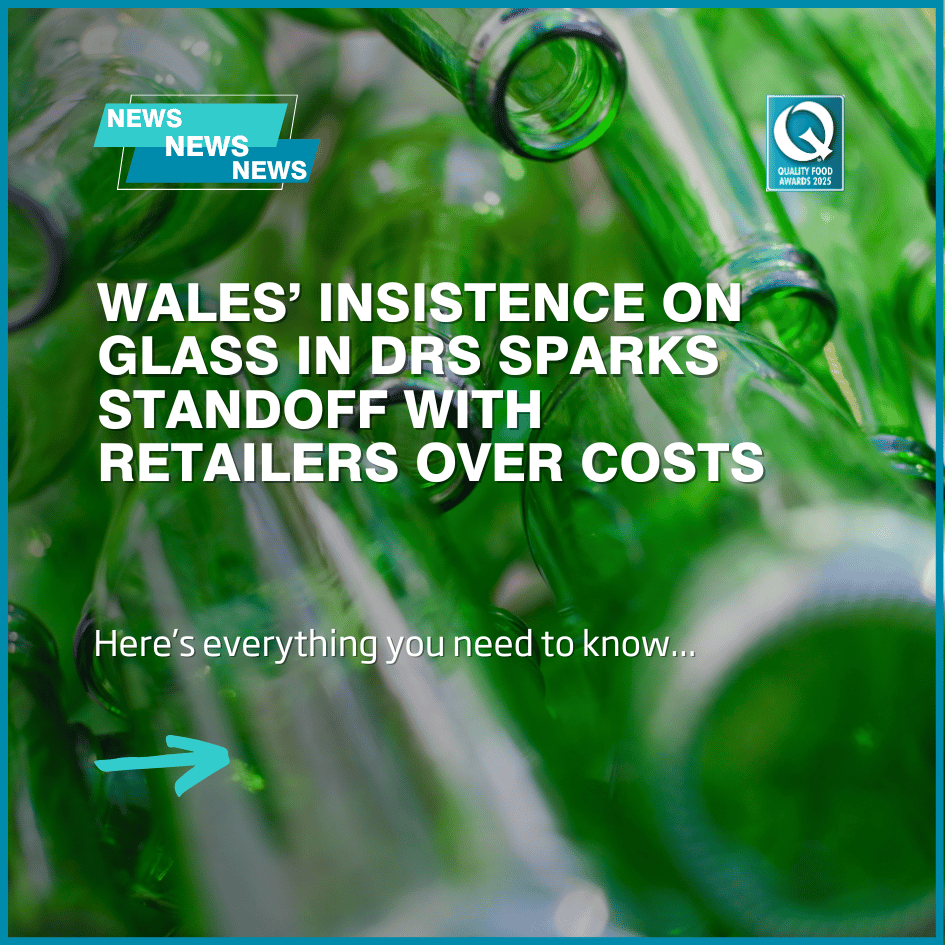
Wales’ insistence on glass in DRS sparks standoff with retailers over costs
Supermarket bosses have accused the Welsh government of pursuing an “antiquated” approach to its proposed deposit return scheme by insisting single‑use glass be included from the outset, warning the move will add cost into the system and heap further inflationary pressure on already hard‑pressed shoppers. Retail trade bodies say the compromise on glass - collecting containers without an initial deposit and without changes to labelling - risks creating operational complexity that could undermine a workable, UK‑wide rollout. According to reporting in The Grocer, the dispute has crystallised into a standoff between business groups and ministers over pace and scope.
Supermarket bosses have accused the Welsh government of pursuing an “antiquated” approach to its proposed deposit return scheme by insisting single‑use glass be included from the outset, warning the move will add cost into the system and heap further inflationary pressure on already hard‑pressed shoppers. Retail trade bodies say the compromise on glass - collecting containers without an initial deposit and without changes to labelling - risks creating operational complexity that could undermine a workable, UK‑wide rollout. According to reporting in The Grocer, the dispute has crystallised into a standoff between business groups and ministers over pace and scope.
The Welsh plan, published alongside a 12‑week consultation launched on 18 August 2025, sets out a phased model in which glass is “in scope” from day one but subject to transitional arrangements intended to limit disruption. The government proposes a zero deposit for single‑use glass initially to avoid immediate changes to labelling, production or distribution, while simultaneously committing to large‑scale trials to develop a reuse pathway for glass bottles. The official rationale, the Welsh Government says, is to balance interoperability with other UK schemes and Wales’s claimed leadership on recycling.
Retailers have been vocal in their response. Andrew Opie, director of food and sustainability at the British Retail Consortium, told The Grocer that while the BRC welcomed alignment on plastic and metal containers and clarity on a 2027 timetable, it did not understand why Wales was insisting on including single‑use glass without an upfront deposit. He warned the proposals risked adding unnecessary costs without clear benefits for consumers or the environment and urged ministers to prioritise a four‑nation aligned scheme for plastic and metal first.
Other industry bodies and producers have echoed those practical concerns. Trade groups including the Bottle and Sauna (sic) — industry representatives and recyclers — have argued that collecting glass without harmonised UK rules could force firms to run different packaging, labelling and distribution systems for cross‑border trade, inflating handling and storage costs and increasing the risk of fraud. Commentators following the debate have also suggested an early glass inclusion could deter investment in reuse trials and complicate retailers’ preparations for a scheme that is already expected to cost billions to implement.
The tension between Wales and UK ministers has a recent history. Westminster signalled a later start and excluded glass from its own phased plans, prompting environmental campaigners’ disappointment and a political row over scope. Industry sources say that divergence — with some parts of the UK favouring exclusion of glass for practical reasons — is precisely why many retailers argue the immediate priority should be an aligned approach for plastic and metal to avoid duplicative systems and extra costs. Wales, however, maintains including glass is consistent with the original DRS ambition agreed by devolved administrations and proponents of a reuse‑led shift.
The Welsh Government has defended its position, pointing to what it says is overwhelming public support and to Wales’s strong recycling record as grounds for a more ambitious stance. Deputy First Minister Huw Irranca‑Davies launched the consultation at the Corona Pop Factory in Porth, describing the consultation as an opportunity to “prioritise reuse” and to shape a scheme that can deliver green jobs and innovation in Wales. Government material stresses collaboration with the rest of the UK to ensure interoperability while also asserting that Wales is well placed to pilot a trailblazing reuse model for glass.
There are realistic paths forward but also clear risks. Industry leaders have proposed a large‑scale reuse trial for glass as an alternative to immediate inclusion with a zero deposit; the BRC and other trade bodies argue that piloting reuse while delivering a harmonised plastic and metal DRS would both protect consumers from added costs and allow Wales to lead on circular‑economy innovation without fragmenting the UK market. Conversely, ministers argue that delaying glass risks perpetuating throwaway behaviours and misses an opportunity to rebuild a reuse culture. The coming consultation is likely to be the battleground on whether ambition or pragmatism prevails.
For now, the Welsh consultation — running for 12 weeks from 18 August 2025 — sets a timetable for further engagement with businesses, local authorities and the public. The next phase will test whether the competing imperatives of industry‑scale feasibility and environmental ambition can be reconciled without derailing a four‑nation scheme that many in retail say must be delivered in an aligned, cost‑neutral way for shops and shoppers alike.
